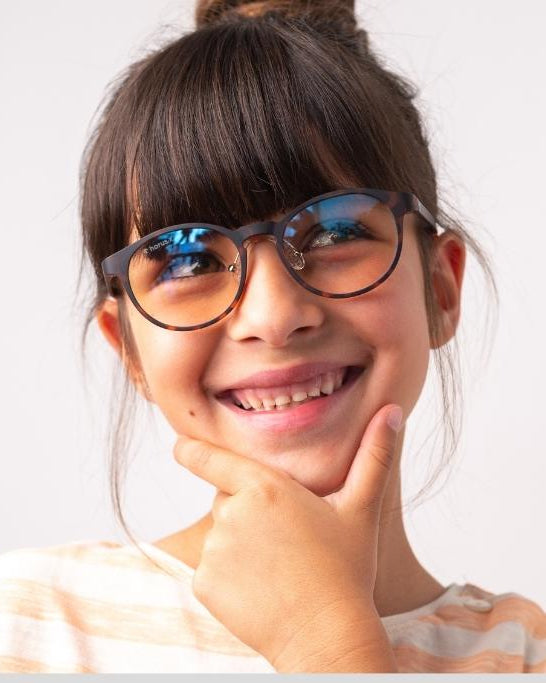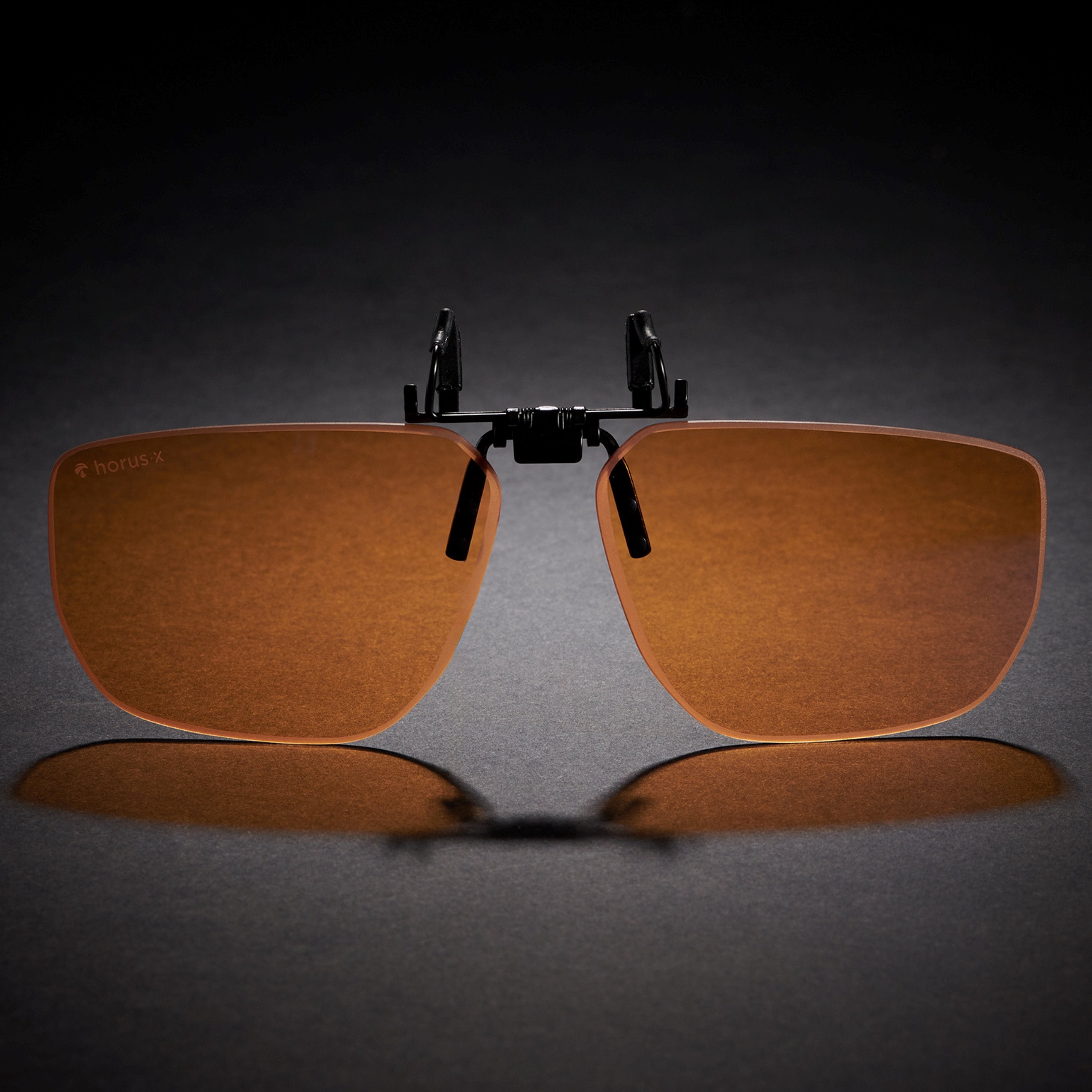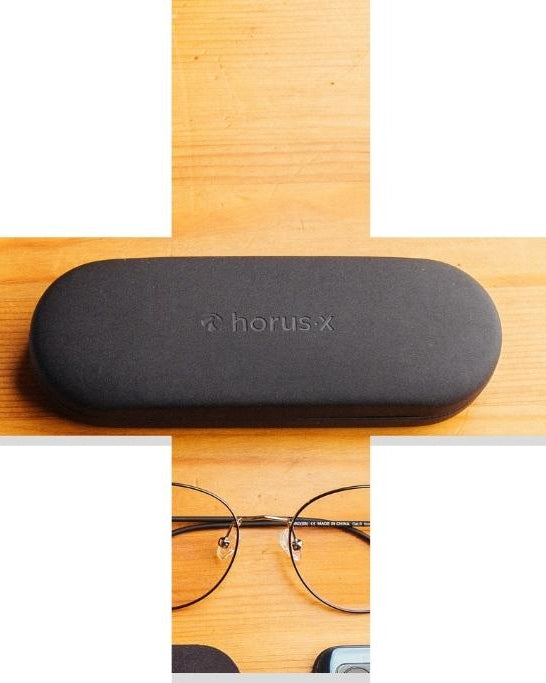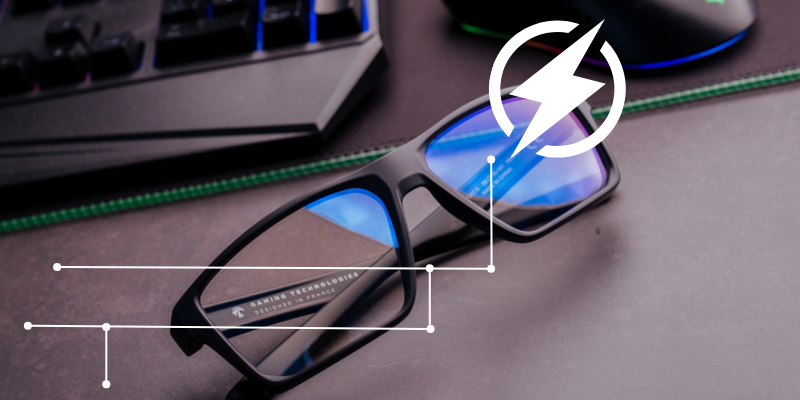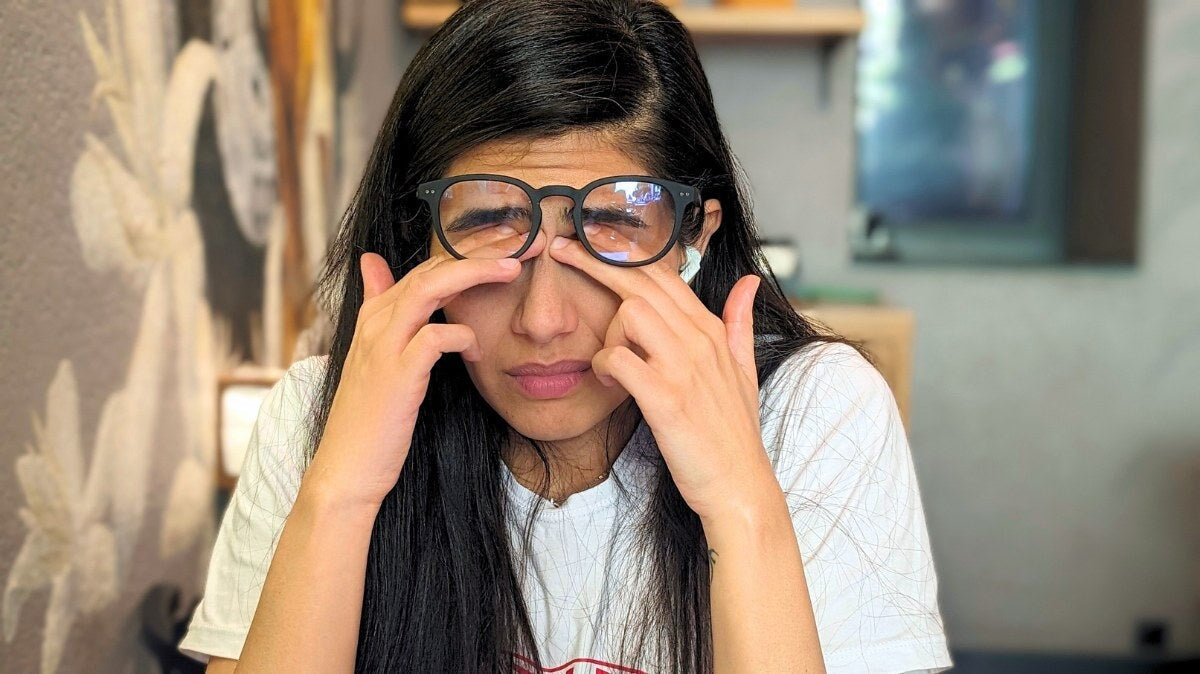These sunglasses are classy, especially since the Horus X models filter not only UV rays, but also harmful blue light from screens. We're almost tempted to wear them all day!
And yet, it's not such a good idea...
Why is it important to wear sunglasses, but not all the time? When should you pull out your favorite sunglasses and when should you safely store them in their case? We take a look.
UV filtering, protection against glare: sunglasses are essential

A quick reminder: Wearing sunglasses helps protect your eyes from glare and the sun's harmful UV rays. It's essential protection, especially in bright sunlight and outdoors, and even more so in very sunny situations like skiing or by the water.
Sunglasses aren't just a fashion accessory: bright sunlight can be dangerous for your eyes, especially your retina.
Without lenses with the right sun filter, the sun's rays can reach your retina directly through the lens, which doesn't completely filter UV rays. And without protection from the sun's brightness and UV rays, you're exposed to several risks:

- 😵💫 Eye strain: headaches, glare, discomfort.
- 🔥 Photokeratitis : This corneal burn causes pain, red eyes, excessive tearing, and blurred vision.
- 🩺 Increased risk of developing certain eye pathologies: cataracts, age-related macular degeneration (AMD).
This is why ophthalmologists will advise you to wear sunglasses outdoors, especially for photosensitive people, to protect your precious little eyes from the light.
Essential, but not all the time: the dangers of 24-hour sunglasses

Okay, we say 24/7, but you get the idea: even if it's the best protection for your eyes, wearing a pair of sunglasses all the time isn't ideal either. Used incorrectly or worn when you shouldn't, your pair of sunglasses can be counterproductive, even harmful. Why? Let's get to it!
🧠 Your brain needs light
Our bodies (and more specifically our vision system) are designed to adapt to variations in light . Worn too often and/or when we don't need them, sunglasses can reduce the eyes' ability to adapt to these small fluctuations: you then become more sensitive to natural light.
🌅 Morning light is sacred

But what is also very important with the sun is how its natural light impacts the body on a daily basis: this is what we call the circadian rhythm, our biological clock regulated by daylight.
And morning light is the one you absolutely mustn't hide from: it boosts the production of cortisol (energy and alertness) and reduces that of melatonin (preparation for sleep).
So, filtering out the entire spectrum of natural light from the first rays of the sun means depriving yourself of that little boost that allows you to start your day off right. And skipping out on that light can lead to fatigue, sleep disturbances and a loss of concentration. That would be a shame, wouldn't it?
💡 Note: if you really want to be productive in the morning, we have the perfect article for you:the best morning routine, validated by the team!
⚠️ Sunglasses can make your eyes tired

Sunglasses are certainly excellent protection against UV rays, but wearing them too often can tire your eyes. As we mentioned earlier, our eyes manage the balance between light and darkness: too little brightness can cause visual discomfort.
And it's even worse if the glasses are misused, of poor quality, or counterfeit: they can then become dangerous. We tell you more about this in our complete guide: Are sunglasses dangerous?
☀️ What about vitamin D?

You're probably wondering if wearing sunglasses all the time affects your vitamin D intake. Vitamin D is produced by the skin in response to sun exposure. It's logical to deduce that hiding behind tinted lenses could limit vitamin D production.
To date, there is no formal evidence that sunglasses actually decrease vitamin D production. The eyes play a minor role in absorbing UVB rays, which are responsible for vitamin D synthesis.
When should you wear them for better protection?
If you're wondering when it's actually useful to wear your sunglasses, we've got a handy guide for you during the day.
🌅 In the morning: it is better to avoid

As you've probably guessed, early morning light is beneficial. Expose your eyes to natural light as soon as you wake up to help your body get the day off to a good start.
Of course, if it's the middle of summer or you live in a very sunny environment, adequate protection is highly recommended. We're talking about the very early morning sun's rays, which are particularly interesting because of their natural blue light, less dangerous and rich in UV rays than those of late morning. And if you're particularly sensitive to light or have an eye condition, always ask your ophthalmologist for advice.
🌞 In broad daylight: yes, your health is at stake.

As soon as the UV index exceeds 3, sun protection becomes essential. And it's even more important in very sunny environments: sea, mountains, snow, at the water's edge, etc.
At the times when the sun is at its hottest until the index goes back to 3, always wear sunglasses, but quality ones please! To choose your pair of sunglasses well, pay attention to the category of the lenses (at least category 3), and the presence of the CE standard, or even UV 400.
💡 Note: If you really want to know if you are well protected, our article “How do I know if my glasses are really anti-UV? ” is for you!
💡 Note (bis): when the weather is gray, wear your sunglasses anyway! A high UV index doesn't necessarily mean a lot of sunshine, because up to 80% of UV rays can pass through clouds during the day.
🌇 At the end of the day: you can, if you don't have anything better.
If at the end of the day, when the light is dim, but eyestrain is still present, sunglasses can help. But the best thing to do is opt for effective anti-blue light glasses : perfect for combating the blue light from screens without blocking the beneficial effects of natural light, especially at the end of the day.
For the evening, we recommend amber anti-blue light lenses, which have the advantage of improving contrasts and reducing glare: you can wear them indoors and outdoors!
The final word: sunglasses, not all the time, just common sense!
- More than just a cosmetic accessory, sunglasses are a real shield for your little eyes. They are therefore essential in full sun, otherwise you risk getting a terrible migraine or worse, eye damage.
- But that doesn't mean you have to have them on your nose every day, all year round! It could harm your circadian rhythm, because your brain needs natural morning light (less aggressive and very beneficial for a natural awakening).
- The key takeaway: let your eyes enjoy the early morning sun (not the kind that burns the retina), equip yourself with good sunglasses when the UV index exceeds 3 and opt for blue light filter glasses at the end of the day.




